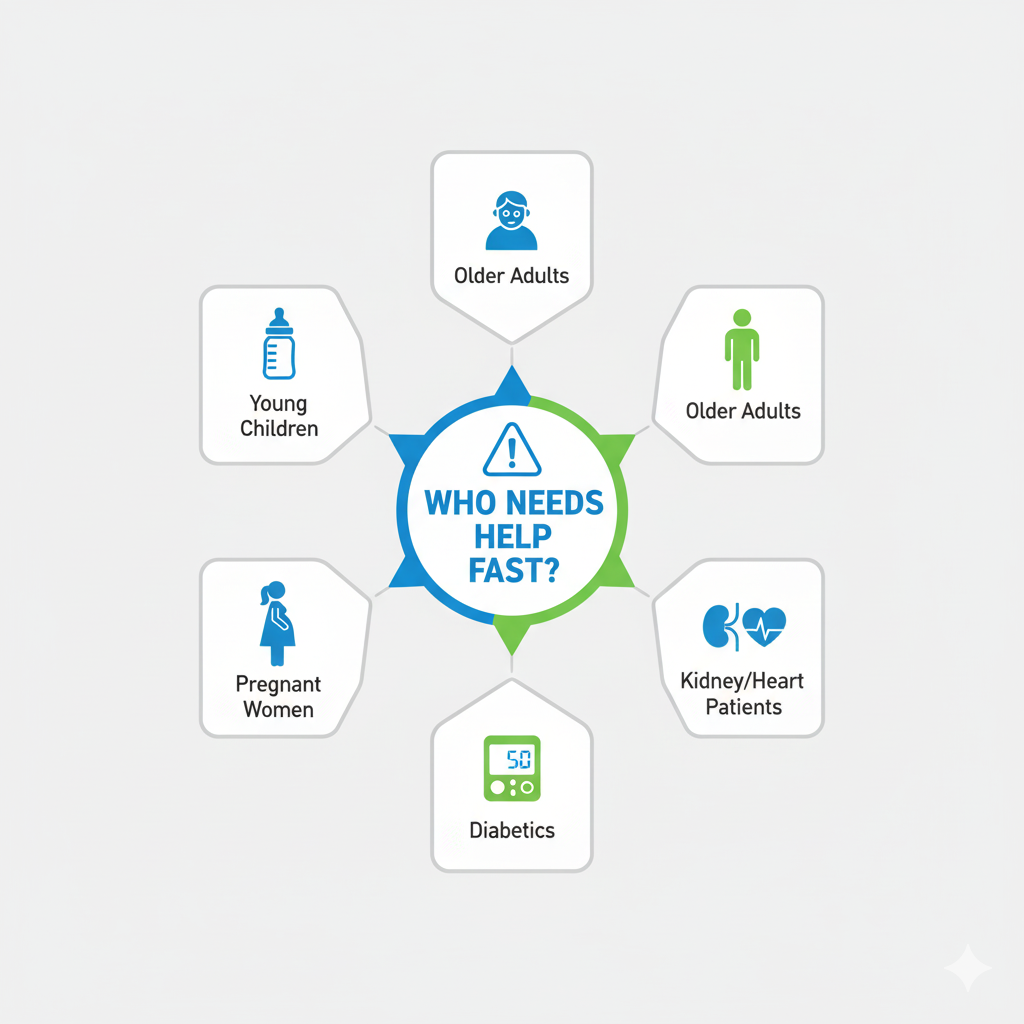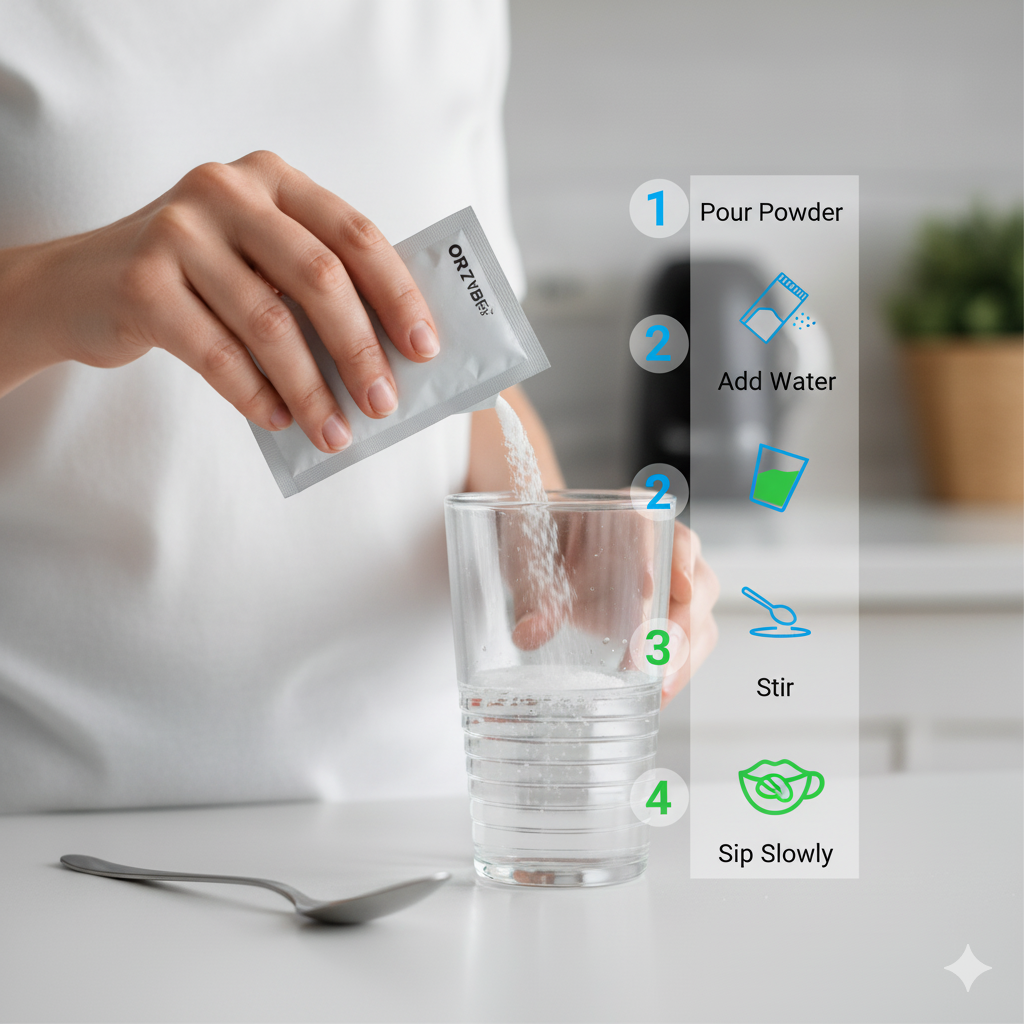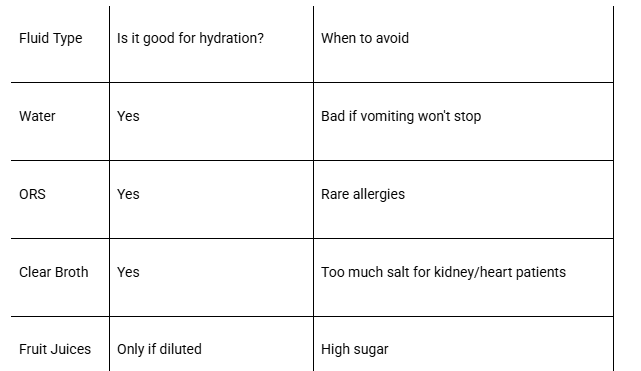Vomiting makes people feel tired, dizzy, and weak. When this happens, our body loses water and important nutrients. If we don’t put these back, dehydration sets in, and this can lead to bigger health problems. This blog brings easy tips for every family, built on the care and trust drmorepenhome.com stands for. Here is how you can keep yourself and your loved ones safe when vomiting and weakness strike.
Quick Action Steps for Dehydration Risk
When to Act Immediately: Key Warning Signs
Sometimes, dehydration comes fast. Look out for dry mouth, cracked lips, and sunken eyes. Feeling faint or dizzy is another big sign you need water. If someone is not peeing much, or if their urine is dark yellow, you should help right away. Kids and older adults need extra help because their bodies are more at risk.
Emergency Remedies for Immediate Hydration
If dehydration is present, do these steps:
- Offer small sips of water or clear fluids every 5 to 10 minutes.
- Use ice chips. Sometimes, it’s easier to suck on small chips than to drink.
- Oral rehydration solutions (ORS) help bring back lost nutrients.
- For children, try two or three teaspoons of fluids every five minutes.
If things get worse or fluids won’t stay down, reach out to a healthcare provider for help.
How to Safely Monitor Fluid Intake and Output
Check urine color and frequency. Pale yellow is good. Fewer than three trips to the bathroom in one day means trouble. For kids or older adults, weigh them every day to see if they are losing water quickly.
Who Needs Help Fast? Populations at Higher Risk
Young children and older adults should always be watched closely. People with diabetes, kidney problems, or heart issues are at higher risk too. Pregnant women should be careful. If these groups are vomiting, pay attention and help them stay hydrated.

Understanding Dehydration Triggered by Vomiting Weakness
Why Vomiting Leads to Fluid and Electrolyte Loss
Vomiting takes away water, sodium, and potassium. These help our nerves and muscles work. If they get too low, muscles might cramp and heartbeats can change. This is why drinking water or ORS is so important.
Impact on the Body: Weakness, Organs, and Recovery Time
Anyone who is dehydrated feels weak because blood doesn’t have enough water. Organs like the kidney and heart can be affected, making sickness last longer. Helping the body recover means giving fluids and rest.

Complications: Kidney, Heart, and Cognition Risks
The kidneys may stop working right if dehydration continues. Some people get confused or even faint. Heartbeats can be strange. These risks are bigger if the person has had health problems before.
When to Worry: Severe Symptoms to Watch For
Go to the doctor if you see blood in vomit or stool, high fever, or if no fluids are staying in the body. If someone feels very weak or faints, take action quickly.
Hydration Strategies During Vomiting Episodes
Best Drinks for Rapid Rehydration: Water, ORS, Broth
The best choices for drinks:
- Oral rehydration solution (ORS) with sugar and salt.
- Make ORS at home: mix one liter water, six teaspoons sugar, half teaspoon salt.
- Clear veggie or chicken broth.
Do not offer sugary drinks, soda, caffeinated drinks, or alcohol.

Step-by-Step Fluid Schedule: Sips vs. Gulping
Begin with tiny sips often. Too much, too fast can upset the stomach. Slowly add more as you get better and vomiting stops.
Oral Rehydration Solution (ORS): DIY vs. Commercial Options
Homemade ORS is okay if measured right, but store ORS packets like those from drmorepenhome.com are simple and quick. For babies under one, call the pediatrician before using any ORS.
Foods to Support Fluid Absorption: Fruits, BRAT Diet, Bland Meals
As vomiting slows, add soft foods:
- Bananas, rice, applesauce, and toast (called the BRAT diet).
- Cooked carrots and potatoes.
- Start small, see how the stomach feels, then add more if things are okay.
Specific Tips for Children, Elderly, and Vulnerable Groups
Dehydration Signs in Young Children and How to React
Look for sunken eyes, dry diapers, and fussiness in kids. Offer small sips or use a spoon or syringe. Wait on solids until vomiting stops.
Special Advice for Seniors: Adjusting Fluid Intake
Older adults might not feel thirsty. Give drinks with meals, choose foods with lots of water like melons and soups, and remind them to sip often.
Managing Chronic Conditions Impacting Hydration: Diabetes, Heart Disease
Track how much patients with these health problems drink. Ask a doctor about the best fluid types and amounts. Kidney and heart patients should avoid salty broths.

What Caregivers Should Know During Illness
Check often. Give fluids every hour. Notice if someone feels weaker or changes how they act. Call for help if vomiting lasts or dehydration gets worse.
Home Remedies and Supportive Care For Recovery
Natural Solutions: Clear Fluids, Herbal Teas, Ice Chips
Try these at home:
- Clear fluids, herbal tea, and diluted juice.
- Ice chips are gentle and easy.
- Avoid milk until you are well again.
Sucking on Ice vs. Drinking—Which Helps More?
Ice chips are good for very upset tummies. When you feel better, start sipping water. Go slow and listen to your body.
When to Resume Food: Guidelines for Bland Diet
Eat only when vomiting is gone for six hours. Try bananas, rice, applesauce, and toast. Steer clear of spicy or fried foods. Add other foods after you feel stronger and no more vomiting.
Avoiding Drinks That Worsen Dehydration (Caffeine, Alcohol, Sugary Soda)
Coffee, tea, cola, and energy drinks are not good during illness. Skip alcohol and sugary sodas too.

Conclusion
Vomiting and weakness can take a toll on any family. When fluids and vital salts leave the body, rapid action can mean a quicker, safer recovery. Notice warning signs early. Use sips of ORS, home fluids, and gentle foods once vomiting slows. Children, seniors, and those with ongoing health conditions need extra care. If in doubt, reach out to healthcare professionals for help. By staying prepared, drmorepenhome.com wants you and your loved ones to bounce back strong—one small step at a time
Frequently Asked Questions (FAQ) About Dehydration and Vomiting Weakness
What are the first signs of dehydration from vomiting?
The first signs often include dry mouth, feeling thirsty, darker urine, tiredness, or less frequent urination. Kids might cry with no tears or have dry diapers.
How can I quickly stop dehydration if I am vomiting?
Try to take small sips of water or oral rehydration solution every few minutes. If you cannot keep liquids down for several hours or feel weak, call a doctor for advice.
Should I give plain water to children or babies who are vomiting?
For babies and small children, oral rehydration solutions are better than plain water. These replace salt and sugar, which water alone doesn’t do as well. Always check with a pediatrician if unsure.
When does vomiting and dehydration become an emergency?
You should seek help if you or your child cannot keep fluids down, have blood in the vomit, a high fever, confusion, very sunken eyes, skin that doesn’t return to normal when pinched, or if vomiting lasts longer than a day. These are signs of severe dehydration and need medical care right away.
What food is safe after vomiting?
Once vomiting stops for several hours, gently introduce easy foods like bananas, apple sauce, toast, or plain rice. Watch for more vomiting when starting to eat again.
.png)


.png)
.png)
.png)
.png)
.png)
.png)
.png)
.png)
.png)
.png)
.png)
.png)
.png)
.png)
.png)
.png)
.png)
.png)
.png)
.png)
.png)


.png)
.png)
.png)
.png)
.png)
.png)
.png)

.png)
.png)
.png)

.png)
.png)
.png)
.png)
.png)
.png)

.png)
.png)

.png)
.png)
.png)

.png)

.png)


.png)







